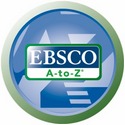Novosti
|
This journal is indexed in Scopus |
|---|
Year 2017 Vol. 25 No 1
EXCHANGE OF EXPERIENCE
A.N. VORONETSKY
ENTEROSCOPY IN CROHN'S DISEASE IN CHILDREN WITH CONSISTENT APPLICATION OF SOLUBLE AND ENDOVIDEO CAPSULES
EE "Belarusian State Medical University",
Minsk
The Republic of Belarus
Objectives. To demonstrate the effectiveness of endovideocapsule enteroscopy in children with Crohn’s disease by preliminary use of a soluble capsule to assess the intestinal patency and therapy monitoring.
Methods. The endoscopic method for diagnosing of the small intestine patency with using a soluble capsule «PillCam patency» and subsequent enteroscopy using endovideocapsule «PillCam» in children with Crohn’s disease had been applied. This article describes two clinical observations of patients with Crohn’s disease; a continuous migration of the capsule due to the presence of strictures of the small intestine took place in one of thоse patients.
Results. The two-stage endoscopic examination of children with Crohn’s disease is justified using clinical examples: at the first stage the intestinal patency is checked using a soluble capsule, if the intestine is passable, at the second stage enteroscopy using endovideocapsule is carried out.
The delay of endovideocapsule migration during the examination has been established to be possible. It does not require an active intervention if a patient has no signs of intestinal obstruction. However, in case of the capsule migration delay, the patient must be dynamically observed in the surgical hospital. In our observation the capsule remained in the small intestine over 7 months with subsequent spontaneous elimination. One of the effective diagnostic methods of capsule delay is the performance of a plain abdominal X-ray, since the capsule batteries are radiopaque.
Conclusion. One of Crohn’s disease complications in children can be a narrowing of the small intestine lumen and its patency, so prior the endovideocapsule enteroscopy the intestinal patency should be checked. The unimpeded migration of a soluble capsule is thought to be a basis for the subsequent capsule endoscopy. In case of endovideocapsule delay in the intestine and preservation passage of the intestinal contents it is necessary to ensure patient’s clinical dynamic observation until the elimination of the capsule.
- Molodecky NA1, Soon IS, Rabi DM, Ghali WA, Ferris M, Chernoff G, Benchimol EI, Panaccione R, Ghosh S, Barkema HW, Kaplan GG. Increasing incidence and prevalence of the inflammatory bowel diseases with time, based on systematic review. Gastroenterology. 2012 Jan;142(1):46-54.e42; quiz e30. doi: 10.1053/j.gastro.2011.10.001. Epub 2011 Oct 14.
- Stavtsev DS, Astrelina TA, Kniazev OV, Pukhlikova TV. Znachenie immunogeneticheskikh faktorov v razvitii bolezni Krona [Value of immunogenetic factors in the development of Crohn's disease] Ros Zhurn Gastroenterol, Gepatol, Koloproktol. 2015;(3):70-77.
- Sara Monteiro, Francisca Dias de Castro, Pedro Boal Carvalho, Maria João Moreira, Bruno Rosa, and José Cotter. PillCam® SB3 capsule: Does the increased frame rate eliminate the risk of missing lesions? World J Gastroenterol. 2016 Mar 14; 22(10): 3066–3068. Published online 2016 Mar 14. doi: 10.3748/wjg.v22.i10.3066PMCID: PMC4779931
- Lennard-Jones JE1. Classification of inflammatory bowel disease. Scand J Gastroenterol. 1989;170(Suppl):2-6; discussion 16-9.
- Boucher AL1, Pereira B1, Decousus S1, Goutte M1, Goutorbe F1, Dubois A1, Gagniere J1, Borderon C1, Joubert J1, Pezet D1, Dapoigny M1, Déchelotte PJ1, Bommelaer G1, Buisson A1. Endoscopy-based management decreases the risk of postoperative recurrences in Crohn's disease. World J Gastroenterol. 2016 Jun 7;22(21):5068-78. doi: 10.3748/wjg.v22.i21.5068.
- American Gastroenterological Association medical position statement: Guidelines for the evaluation and management of chronic diarrhea. 1999 Jun;116(Is 6):1461-63. doi: 10.1016/S0016-5085(99)70512-3.
- Proekt klinicheskikh rekomendatsii po diagnostike i lecheniiu vzroslykh patsientov s bolezn'iu Krona [Project clinical guidelines for the diagnosis and treatment of adult patients with Crohn's disease]. Koloproktologiia. Prilozhenie 2013;(3,45): 22-38
- João Santos-Antunes, Hélder Cardoso, Susana Lopes, Margarida Marques, Amadeu CR Nunes, and Guilherme Macedo. Capsule enteroscopy is useful for the therapeutic management of Crohn’s disease. World J Gastroenterol. 2015 Nov 28; 21(44): 12660–12666. Published online 2015 Nov 28. doi: 10.3748/wjg.v21.i44.12660 PMCID: PMC4658621
- Kilcoyne A1, Kaplan JL1, Gee MS1. Inflammatory bowel disease imaging: Current practice and future directions. World J Gastroenterol. 2016 Jan 21;22(3):917-32. doi: 10.3748/wjg.v22.i3.917.
- Bennett JL1, Ha CY1, Efron JE1, Gearhart SL1, Lazarev MG1, Wick EC1. Optimizing perioperative Crohn's disease management: role of coordinated medical and surgical care. World J Gastroenterol. 2015 Jan 28;21(4):1182-8. doi: 10.3748/wjg.v21.i4.1182.
- Dominik Bettenworth, Tobias M Nowacki, Friederike Cordes, Boris Buerke, and Frank Lenze. Assessment of stricturing Crohn's disease: Current clinical practice and future avenues. World J Gastroenterol. 2016 Jan 21; 22(3): 1008–1016. Published online 2016 Jan 21. doi: 10.3748/wjg.v22.i3.1008 PMCID: PMC4716016
- Amareshwar Podugu, Kanwarpreet Tandon, and Fernando J Castro. Crohn's disease presenting as acute gastrointestinal hemorrhage. World J Gastroenterol. 2016 Apr 28; 22(16): 4073–4078. Published online 2016 Apr 28. doi: 10.3748/wjg.v22.i16.4073 PMCID: PMC4837426
- Voronetskii AN, Liakh OM, Dergachev AV. Primenenie endovideokapsuly dlia diagnostiki patologii tonkoi kishki u detei [Application of endovideocapsule for diagnosing pathology of the small intestine in children]. Zdravookhranenie. 2015;(5):32-34.
- Voronetskii AN, Liakh OM, Leskovskaia SV, Savanovich II, Dergachev AV. Primenenie rastvorimoi kapsuly dlia diagnostiki prokhodimosti tonkoi kishki u detei [The use of soluble capsules to diagnose intestinal permeability in children]. Zdravookhranenie. 2016;(4):28-32.
220116, the Republic of Belarus,
Minsk, Dzerzhinsky Ave., 83,
Department of pediatric surgery.
Tel.: +375 029 32-902-32
E-mail: anvoron@mail.ru
Alexander N. Voronetsky
Voronetsky A.N. PhD, Ass. Professor of the pediatric surgery department, EE "Belarusian State Medical University".




























